#akash kusum 1965
Text
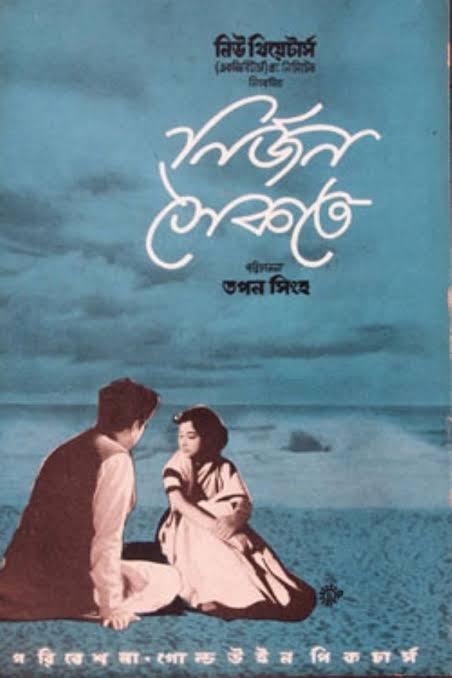

Nirjan Saikate (1963) // Akash Kusum (1965) // film poster comparison
------------------------------------------------------------------------------
Nirjan Saikate (The Desolate Beach) - dir, Tapan Sinha
Akash Kusum (Up in the Clouds) - dir. Mrinal Sen
------------------------------------------------------------------------------
#nirjan saikate#nirjan saikate 1963#the desolate beach#the desolate beach 1963#akash kusum#akash kusum 1965#up in the clouds#up in the clouds 1965#tapan sinha#mrinal sen#anil chatterjee#sharmila tagore#soumitra chatterjee#aparna sen#indian cinema#bengali cinema#art#world cinema#classic cinema#film posters#movies#cinema#films#indian films#parallel cinema
7 notes
·
View notes
Note
hi, can you recommend a soumitra chaterjee movie thats good to watch? i want to see him in something but idk whats a good film with him in. thank u, and i hope ur having a good day, ur dog is so cute
aww thank you!!!
besides probably his films with satyajit ray (apur sansar, devi, charulata, etc) i prefer youthful soumitra chatterjee so you should watch akash kusum (1965) or basanta bilap (1973) ! idk if you can understand bengali but both of them used to be on youtube w/eng subs (basanta bilap is linked in parts)
1 note
·
View note
Photo
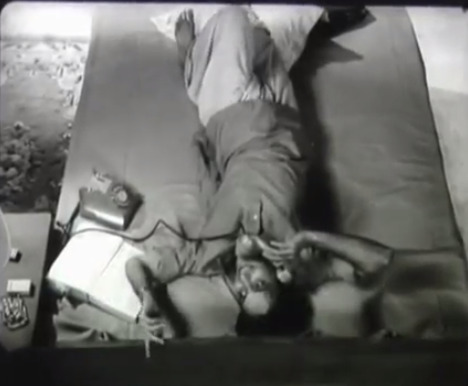
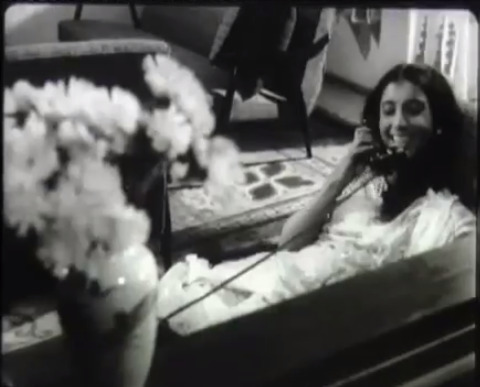
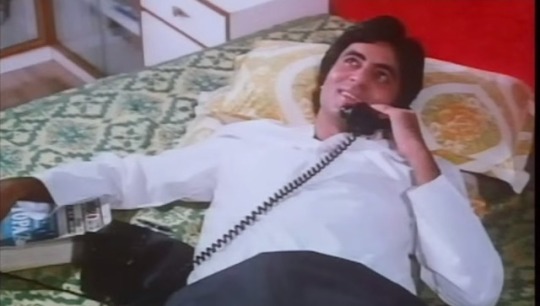

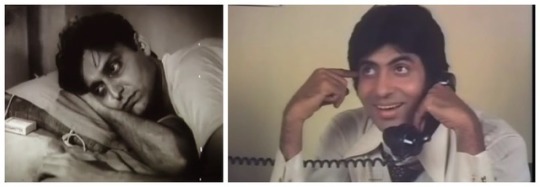
The Hindi film Manzil is a very close remake visually, yet somehow the Bengali original Akash Kusum is more endearing because of the blocking and angles.
From my blog post on these two films:
[The phone is] not just a symbol of prosperity: it makes the mobility and self-presentation in these stories possible. It works over distance and thus is very helpful when you need to lie, yet the phone also connects Ajoy/Ajay to the business and social worlds and opportunities he so deeply desires. He is unlikely to run into those types of business or romantic contacts in his everyday life, and phone calls in these films are often (though not always) deliberate, even arranged. "Pick up the receiver: I'll make you a believer" keeps echoing through my head. If I understand correctly, it is when Monica/Aruna asks for Ajoy/Ajay's phone number that his lies begin. We see the panic flicker across both actors' eyes—the films have shown us where he lives, and he and his mother definitely do not have a phone. Interestingly, even when they're not on the phone, characters are often near one. It lurks, equally threatening and enticingly, a fixture in many different emotional states. You never know who's on the other end. These films also capture that wonderful dopey feeling you get when the person you lurve calls you, the phone transporting you out of a consciousness of where you actually are and into the dreamy world where just you two exist.
Coincidentally (I swear!), Trisha Gupta just wrote a piece on the phone in Hindi cinema. It's a great read, discussing aspects of phone-based life like disruption, long-distance romances, and pocket-dialing, as well as the deliberate choice in The Lunchbox not to use modern phone technology in the principal story.
(Manzil 1979; Akash Kusum 1965; my whole blog post on the pair of them here)
0 notes